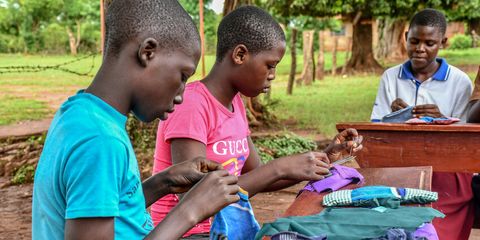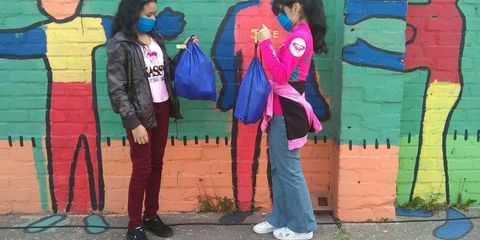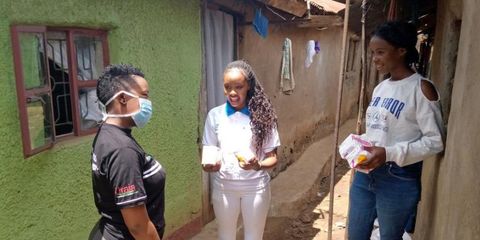On any given day, around 300 million people globally will have their periods. But all too often, this natural and healthy part of life is seen as shameful and dirty.
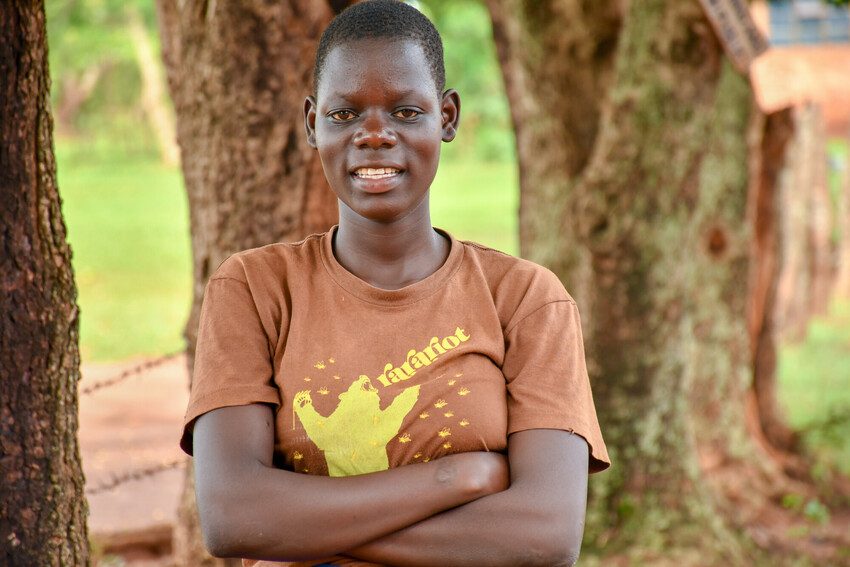
Myths and false information around periods are common, and often lead to girls, women, transgender men and non-binary people who menstruate being stigmatised. It means they are excluded from everyday activities, and over time, limits their life opportunities.
In India and Nepal, for example, in some communities you can’t sleep inside your own home if you are menstruating. In other cultures, you can’t visit places of worship, eat certain food, or even cook. In other countries, you aren’t allowed to bathe, do chores, or interact with men and boys.
Social norms like these limit girls’ freedom and create feelings of shame that can erode confidence and dignity. A study conducted by Plan International Indonesia in 2018 found that 39% of schoolgirls have received verbal abuse from classmates while on their period.
Taboos around discussing menstruation mean that countless girls start their periods scared, uninformed and without support. Many think they are sick, or even dying when they bleed for the first time.
15-year-old Hellen from Kamuli district had her first period when she was nine years old. “This was one of my toughest life experiences. I thought it was an internal problem and I would bleed to death. I did not know anything about menstruation and I only learnt about it at school.”
This is a common issue in Uganda, particularly in rural areas, where girls have limited knowledge about the biological changes associated the menstrual cycle.
Impact of menstruation on girls’ education
Menstrual health also has a huge impact on girls’ education, as girls are often forced to skip classes when they are on their period. Plan International research in Uganda and Indonesia, for example, has found that about half of adolescent girls do not go to school when they are menstruating – missing out on up to 24 days of school a year.
I knew nothing about the whole menstruation thing and at a certain point I even imagined it was a kind of illness that girls and women experienced.
Jimmy, 16, Kamuli district
The reasons for this vary – it can be because girls aren’t allowed to leave home, they are made to feel ashamed or unclean, or don’t have sanitary products. It is also often because schools do not have clean, private places where girls can wash or change their pads.
According to UNICEF, globally, more than one in three schools (37%) do not have clean, single-sex toilets (37%). One in five (19%) have no usable toilets at all.
At least 500 million girls and women – that’s one in four of the world’s female population of reproductive age – don’t have what they need to manage their period, whether sanitary pads or access to a clean toilet .
Menstrual products seen as ‘luxury’ items
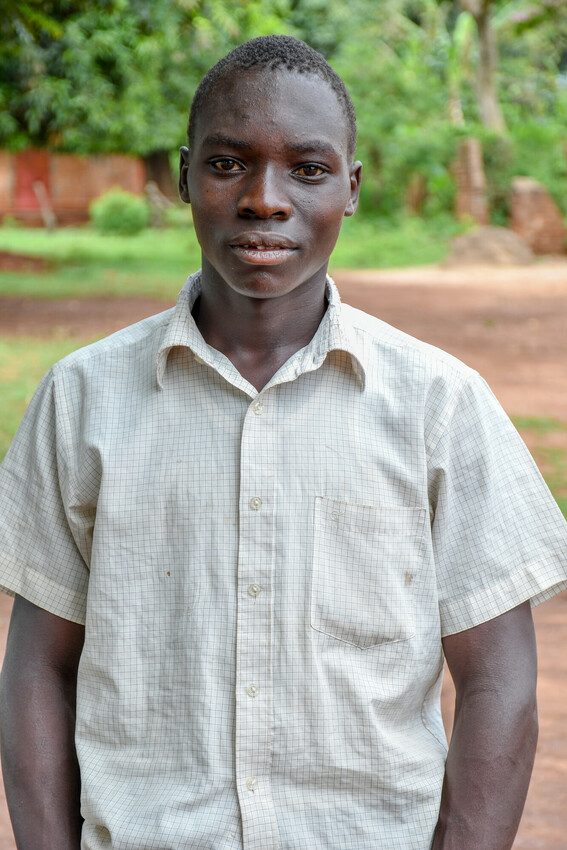
The culture of silence around periods means that quality menstrual products like pads are not available, affordable or prioritised as household expenditure. This means that in low-income countries in particular, menstrual products are seen as “luxury items”, which girls and women will often forgo so their families don’t have to cut back on other essential items, like food, baby milk or school supplies. Girls and women are instead forced to use unhygienic materials like old newspapers, rags, earth, sand, ash, grass or leaves, which are uncomfortable and can cause infections.
When an emergency strikes – be it conflict or disaster – these challenges multiply as access to information, sanitary products and toilet facilities often becomes even more limited. This is especially true when people are forced to flee their homes and settle in overcrowded camps or informal settlements.
The stigma surrounding menstruation both stems from and worsens gender inequality. It comes from a perception of girls as less worthy – both in society and within families – and by exposing them to discrimination and unfair treatment, affects their health and wellbeing.
Jimmy, 16, from Uganda’s Kamuli District says that while he was growing up, speaking about menstruation was a taboo and if any of the children said anything about menstruation they would be punished. “I knew nothing about the whole menstruation thing and at a certain point I even imagined it was a kind of illness that girls and women experienced. This was because I did not hear anyone talk about it until I joined the school health club.”
Our latest research shows that more than 1 in 3 boys believe that periods should be kept secret.
Periods are natural, not shameful.
No woman, girl, or person who menstruates should start their period without knowing what is happening to their body, and without access to sanitary products.
Every person who menstruates should have access to a clean, private toilet facility, including and especially in schools.
Our ‘Bloody Serious Matter’ project, funded by the government of Netherlands is working in partnership with the Uganda Ministry of Health and Education to support communities in Kamuli district to understand the importance of dignity and healthy menstruation for girls and women.
Health clubs have been set up at nearly 200 schools in Tororo, Lira and Kamuli Districts to raise awareness of Menstrual Health Management (MHM) and break down the associated taboos and myths surrounding periods. The students are also taught how to make reusable sanitary pads using local materials.
Young people are breaking down period stigma
Hellen says the health club at her school has increased her confidence whenever she has her period. “Taking part in the school health club has helped me deal with my periods comfortably, whenever it’s time, I know what to do and how to deal with any kind of intimidation.”
Now a MHM champion at his school, Jimmy helps his fellow boys to understand that menstruation is just a normal monthly routine that girls experience.
“At my school, the habit of boys bullying girls about menstruation has reduced. I have seen boys on many occasions alerting the senior female teacher whenever they notice a girl who is uncomfortable and those who have stained their uniforms.”
To ensure girls have access to clean and safe wash facilities to manage their periods, Plan International constructed 69 girl-friendly toilet blocks and rehabilitated 34 boreholes in the schools we are working in. All latrines include an MHM room with access to water, a mirror, and cloth rail so girls can wash themselves in private.
